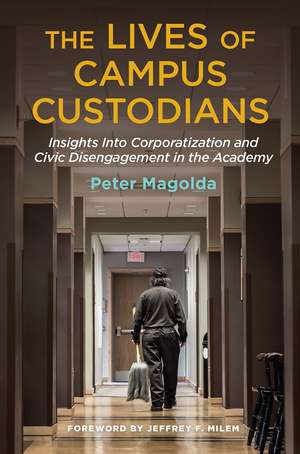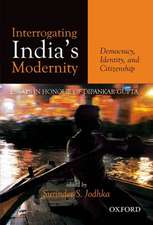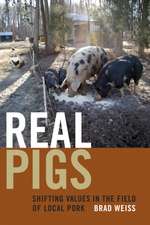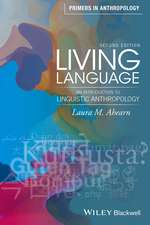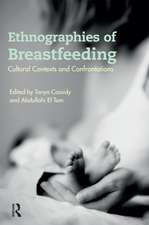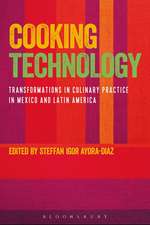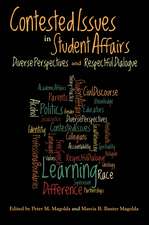The Lives of Campus Custodians: Insights into Corporatization and Civic Disengagement in the Academy
Autor Peter M. Magoldaen Limba Engleză Paperback – 13 apr 2016
| Toate formatele și edițiile | Preț | Express |
|---|---|---|
| Paperback (1) | 303.21 lei 6-8 săpt. | |
| Taylor & Francis – 13 apr 2016 | 303.21 lei 6-8 săpt. | |
| Hardback (1) | 1162.15 lei 6-8 săpt. | |
| Taylor & Francis – 26 apr 2016 | 1162.15 lei 6-8 săpt. |
Preț: 303.21 lei
Preț vechi: 319.17 lei
-5% Nou
Puncte Express: 455
Preț estimativ în valută:
58.02€ • 60.73$ • 48.29£
58.02€ • 60.73$ • 48.29£
Carte tipărită la comandă
Livrare economică 31 martie-14 aprilie
Preluare comenzi: 021 569.72.76
Specificații
ISBN-13: 9781620364604
ISBN-10: 1620364603
Pagini: 288
Dimensiuni: 152 x 229 x 23 mm
Greutate: 0.36 kg
Ediția:1
Editura: Taylor & Francis
Colecția Routledge
Locul publicării:Oxford, United Kingdom
ISBN-10: 1620364603
Pagini: 288
Dimensiuni: 152 x 229 x 23 mm
Greutate: 0.36 kg
Ediția:1
Editura: Taylor & Francis
Colecția Routledge
Locul publicării:Oxford, United Kingdom
Public țintă
PostgraduateNotă biografică
Peter M. Magolda was Professor Emeritus in the Department of Educational Leadership at Miami University. He focused his scholarship on ethnographic studies of college students, critical issues in qualitative research, and program evaluation. He is author of The Lives of Campus Custodians and co-author of Contested Issues in Student Affairs, Contested Issues in Troubled Times, and It’s All About Jesus!: Faith as an Oppositional Collegiate Subculture, and has served on the editorial boards of Research in Higher Education and the Journal of Educational Research. He was an ACPA Senior Scholar inductee, and in 2013 received the Association for the Study of Higher Education (ASHE) Mentoring Award. He also received Miami University’s Richard Delp Outstanding Faculty Member award, as well Alumni Award from The Ohio State University and Indiana University. We deeply mourn the loss of author, teacher, and friend Peter M. Magolda. Jeffrey F. Milem is the Ernest W. McFarland Distinguished Professor in Leadership for Education Policy and Reform in the College of Education at the University of Arizona. He is a Professor in the Center for the Study of Higher Education and Director of the Arizona Medical Education Research Institute (AMERI). Previously, he served as Department Head for the Department of Educational Policy Studies & Practice as well as Associate Dean for Academic Affairs in the College. Jeff has also been a courtesy appointment in the Department of Medicine at the University of Arizona. He is Past President of the Association for the Study of Higher Education. In addition to his employment in higher education, Jeff has worked as a photographer, janitor, maintenance worker, house painter, landscaper, bartender, cook, and hospital orderly.
Cuprins
Acknowledgements Foreword by Jeffrey F. Milem Preface. “I See You” Part One. The Research Study, Research Sites, and Researcher 1. You Must Have Done Something Wrong The Right Kind Of Wrong What’s Wrong? Writing Wrongs 2. Research Site Insights Cleaning Insights Research Sites Historical and Political Insights Insights Unseen 3. Coming Clean. Ethnographic Origins and Milieus The Subjective “I” And “Eye” Lessons Learned Part Two. The Custodial Life. Family and Fear 4. Pathways To A Cleaner [’s] Life Career Immobility Upward Mobility Downward Mobility The Allure Of Custodial Work on College Campuses Left Behind and Losing Ground 5. The Custodian Life Mr. Clean An All-Purpose Cleaner The Grim Sweeper Grime Scenes 6. The Supervising Life The Clean Team The Buffer Worker-Manager Strife 7. Fear the Worst Primal Fear Fear Factors Caste-Away Fears 8. Family Matters Family Feuds The CU Family The HU Family Family Therapy Part Three. Corporate Managerialism and Civic Disengagement 9. The Corporate Creep Business As [Un]Usual How’s Business? Not So Good Getting Down to Business A Corporate Managerialism Business Model Going out of Business 10. Soiled Educational Aspirations and Civic Disengagement Doing More Harm Than Good The Good, The Bad, and the Ugly Too Bad Part Four. Education and Possibilities 11. The Courage to Be [In Trouble] Urine Trouble Troublemakers Trouble In Paradise 12. A Dog’s Life Having a Dog’s Chance Teaching Old Dogs New Tricks Dog-ma Epilogue Compton University Staff Updates Harrison University Staff Updates Miami University Staff Updates Appendix A. Research Methodologies and Methods Philosophical Foundations Influences on Fieldwork Methods Writing Goodness Criteria Appendix B. Unsanitized Tales From the Field Omissions Accomplished Fools Rush in Where Angels Fear to Tread Conclusion References Index
Recenzii
“Magolda combines more than a year of participant observation, ethnographic interviews, and literature review to give us a valuable glimpse into what daily life is like for custodians on two different college campuses. I especially enjoyed the many tell-it-like-it-is quotes from custodians that Magolda includes.
The book is also eye-opening about ‘community engagement,’ and offers new ways to think about it. I teach a service-learning class every spring and have helped lead the faculty advisory group for our Office for Community Engagement. Yet until reading The Lives of Campus Custodians, I had never thought about having our students engage with an important but largely invisible community: the low-wage staff working at our university.
Toward the end of the book, Magolda offers a series of concrete suggestions for how to improve matters for both custodians and the university, directed at administrators, supervisors, students, faculty, and custodians themselves.”
Reflective Teaching
"In The Lives of Campus Custodians: Insights Into Corporatization and Civic Disengagement in the Academy, Peter Magolda presents the stories of custodians on two college campuses in order to shed light on campus custodians, frequently marginalized collegiate subculture, and to present an alternative way for readers to think both about the corporatization of higher education and knowledge production.
The Lives of Campus Custodians presents an alternative way of thinking about the ways higher education has become corporatized. Traditional literature on this topic addresses corporatization from the viewpoint of faculty, campus administrators, and others outside of higher education. This is the first text to examine this topic from the viewpoint of a campus subculture that experiences marginalization as a result of this corporate managerialism.
Although not specifically mentioned, this book would be a useful resource for graduate students, particularly doctoral students who are in the process of writing their dissertation proposal or seeking approval through their institutional review board. Magolda's discussion of his methodology appears in the appendixes and provides valuable insight into such topics as gaining access to research sites, the ethics of doing qualitative research, and goodness criteria. Graduate students who have only explored these topics in more traditional research textbooks would be well-served by reading this exemplar.
The greatest contribution this book makes is that it sensitizes readers to a subculture that remains disregarded, but one that contributes to student learning. Although higher education administrators at best view campus custodians as the 'cleaning people,' or at worst, barely human, custodians view themselves as educators and valuable contributors to the communities they serve."
The Review of Higher Education
"In this insightful volume, Magolda enters into the worlds of work of custodians who keep the spaces of learning and living clean, safe and welcoming for students, faculty and staff. Magolda’s work is the first full-scale study of custodial work from the ground work that I am aware of. His bottom up documentation of custodians’ realities and day-to-day experiences fills a very significance gap in the literature on higher education work. The organization of the book into three major themes -- fear, fatalism and family -- make much of what he learns applicable across other fields of work. Scholars and students of labor will find themselves in these pages, particularly in Magolda’s insightful work on the “family” of the workplace. His concluding section allows for a re-interpretation of the consequences of corporate managerialism on civility and community in higher education. Finally, Magolda is generous in sharing his methodological decisions and approaches in appendixes that deepen the utility of the book for courses on labor, sociology, occupations, and higher education."
Karla A. Erickson, Ph.D., Professor of Sociology and Associate Dean of the College
Grinnell College
"Magolda’s goal was to create an 'interesting, accessible, credible, provocative, moderately disorienting, and educational' story. His ethnographic study of custodians at two higher education institutions has achieved that and more. In living their culture he came to appreciate the impact of the changing university on the 'least' of its members. Magolda uses this study of a university subculture to critique the trend toward corporatization in higher education. A critical read for everyone in the academy."
Gretchen Metzelaars, PhD, Senior Associate Vice President, Office of Student Life
The Ohio State University
"Magolda’s work promises to be one of the most important studies of our time for higher education scholars have virtually ignored the lived experiences and contributions of members from the campus invisible custodial caste. Through the use of casual conversation, storytelling and case studies Magolda’s writing is compelling, honest and personal. His research stands as witness that the academy espouses inclusivity but does not enact it. This book is a must read, a moral imperative, rooted in social justice."
Patty Perillo, PhD, Vice President for Student Affairs and Assistant Professor of Higher Education
Virginia Tech
The book is also eye-opening about ‘community engagement,’ and offers new ways to think about it. I teach a service-learning class every spring and have helped lead the faculty advisory group for our Office for Community Engagement. Yet until reading The Lives of Campus Custodians, I had never thought about having our students engage with an important but largely invisible community: the low-wage staff working at our university.
Toward the end of the book, Magolda offers a series of concrete suggestions for how to improve matters for both custodians and the university, directed at administrators, supervisors, students, faculty, and custodians themselves.”
Reflective Teaching
"In The Lives of Campus Custodians: Insights Into Corporatization and Civic Disengagement in the Academy, Peter Magolda presents the stories of custodians on two college campuses in order to shed light on campus custodians, frequently marginalized collegiate subculture, and to present an alternative way for readers to think both about the corporatization of higher education and knowledge production.
The Lives of Campus Custodians presents an alternative way of thinking about the ways higher education has become corporatized. Traditional literature on this topic addresses corporatization from the viewpoint of faculty, campus administrators, and others outside of higher education. This is the first text to examine this topic from the viewpoint of a campus subculture that experiences marginalization as a result of this corporate managerialism.
Although not specifically mentioned, this book would be a useful resource for graduate students, particularly doctoral students who are in the process of writing their dissertation proposal or seeking approval through their institutional review board. Magolda's discussion of his methodology appears in the appendixes and provides valuable insight into such topics as gaining access to research sites, the ethics of doing qualitative research, and goodness criteria. Graduate students who have only explored these topics in more traditional research textbooks would be well-served by reading this exemplar.
The greatest contribution this book makes is that it sensitizes readers to a subculture that remains disregarded, but one that contributes to student learning. Although higher education administrators at best view campus custodians as the 'cleaning people,' or at worst, barely human, custodians view themselves as educators and valuable contributors to the communities they serve."
The Review of Higher Education
"In this insightful volume, Magolda enters into the worlds of work of custodians who keep the spaces of learning and living clean, safe and welcoming for students, faculty and staff. Magolda’s work is the first full-scale study of custodial work from the ground work that I am aware of. His bottom up documentation of custodians’ realities and day-to-day experiences fills a very significance gap in the literature on higher education work. The organization of the book into three major themes -- fear, fatalism and family -- make much of what he learns applicable across other fields of work. Scholars and students of labor will find themselves in these pages, particularly in Magolda’s insightful work on the “family” of the workplace. His concluding section allows for a re-interpretation of the consequences of corporate managerialism on civility and community in higher education. Finally, Magolda is generous in sharing his methodological decisions and approaches in appendixes that deepen the utility of the book for courses on labor, sociology, occupations, and higher education."
Karla A. Erickson, Ph.D., Professor of Sociology and Associate Dean of the College
Grinnell College
"Magolda’s goal was to create an 'interesting, accessible, credible, provocative, moderately disorienting, and educational' story. His ethnographic study of custodians at two higher education institutions has achieved that and more. In living their culture he came to appreciate the impact of the changing university on the 'least' of its members. Magolda uses this study of a university subculture to critique the trend toward corporatization in higher education. A critical read for everyone in the academy."
Gretchen Metzelaars, PhD, Senior Associate Vice President, Office of Student Life
The Ohio State University
"Magolda’s work promises to be one of the most important studies of our time for higher education scholars have virtually ignored the lived experiences and contributions of members from the campus invisible custodial caste. Through the use of casual conversation, storytelling and case studies Magolda’s writing is compelling, honest and personal. His research stands as witness that the academy espouses inclusivity but does not enact it. This book is a must read, a moral imperative, rooted in social justice."
Patty Perillo, PhD, Vice President for Student Affairs and Assistant Professor of Higher Education
Virginia Tech
Descriere
This unique study uncovers the lives and working conditions of a group of individuals who are usually rendered invisible on college campuses--the custodians who daily clean the offices, residence halls, bathrooms and public spaces.
